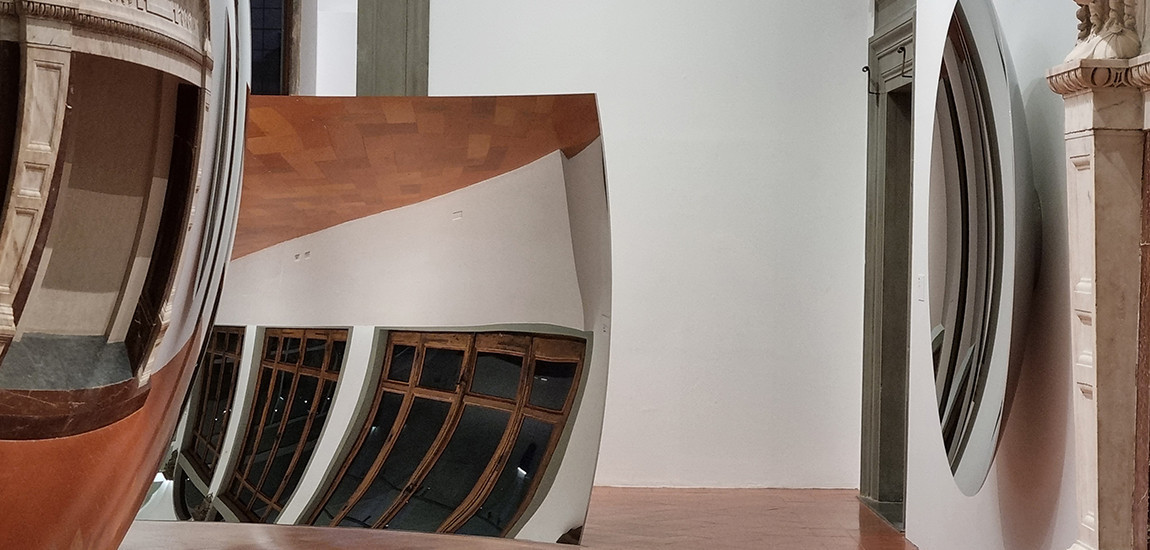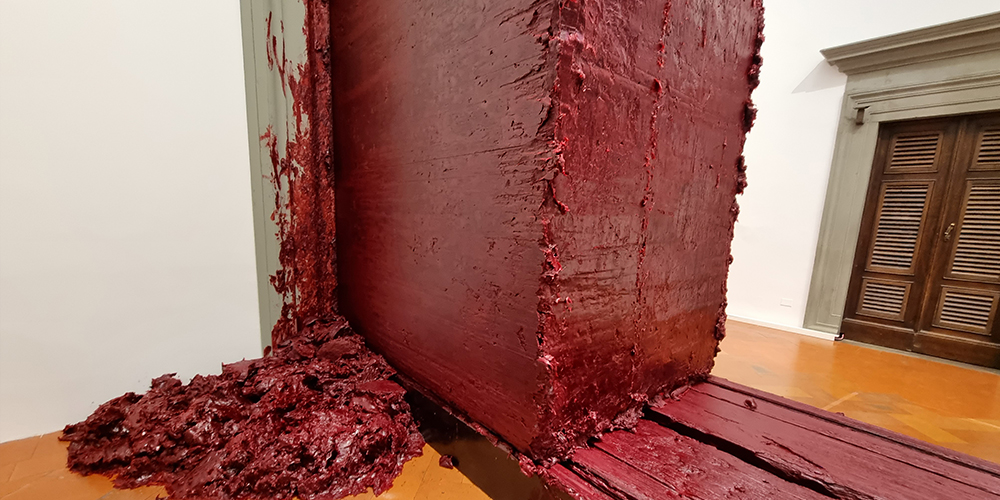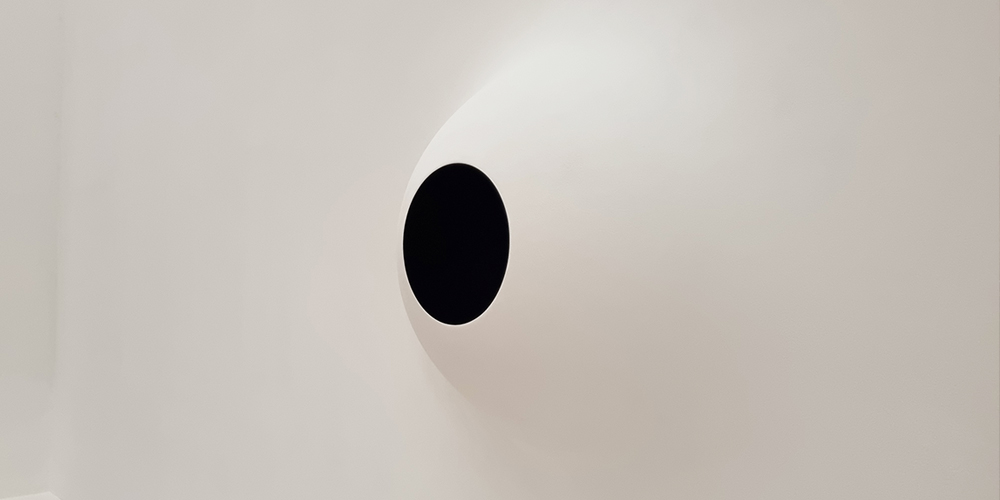
Anish Kapoor. Untrue Unreal at Palazzo Strozzi
Anish Kapoor,
renowned British artist of Indian origin, has always had a close relationship
with Italy. He has exhibited works in several Italian museums, such as the
MAXXI in Rome and the Prada Foundation in Milan, he chose Venice to open his
namesake Foundation inside Palazzo Manfrin and he even designed the entrance to
line 7 of the Naples metro.
Now
he has also arrived in Florence with the great exhibition Anish Kapoor.Untrue Unreal,
open at Palazzo Strozzi until February 4th.
The
exhibition proposes a journey through historical works and site-specific works,
specifically designed taking into account the spaces of the building.
As
soon as we enter the courtyard we immediately find ourselves in front of the
first work in dialogue with the architecture of the building, Void
Pavillion VII (2023), which makes visitors reflect on the idea of space
and perspective, thanks to the immersive experience in a environment created
specifically for the occasion.
Going
up to the main floor the exhibition itinerary begins with the iconic Svayambhu
(2007), a Sanskrit term which means "self-generated" and refers
precisely to the fact that the work here is created autonomously and in real
time: an enormous block of red wax moves slowly on a guide between two rooms of
the palace, morphing and leaving traces of itself as it passes through one of
the large Renaissance doors.

Further
on we find Endless Column (1992), which is inspired by the homonym sculpture
by Constantin Brancusi. Kapoor's column of red pigment seems to come from
underground and break through all the floors of the building, stretching towards
the sky ad infinitum. Here we begin to understand a fundamental idea that
Kapoor wants to convey through many of his works, namely that the artwork
transcends matter, a concept reiterated even more clearly in the next room.
The
"black works" series make use of the famous Vantablack, an innovative pigment composed of carbon nanotubes,
which is capable of absorbing more than 99.9% of the visible light. This almost
absolute black makes it nearly impossible to distinguish the internal contours
of the painted object and therefore the third dimension.
Kapoor
creates works that are real black holes of perception, that confuse and make
the viewer dizzy. Even knowing already that they are painted surfaces, the
viewer's eye cannot help but look for something more within these works made of
darkness, which appear like portals to another dimension, where space is
potentially infinite.

Just
like his "black holes", a work like Vertigo (2006) attracts
the viewers, sucks them into its center and disrupts their perception of
reality, in this case literally turning it upside down, stretching it,
distorting it and arousing precisely a sense of vertigo and disorientation.
The
exhibition concludes with pieces of sky fallen to earth: Angel (1990) is a work
composed of large stones covered with electric blue pigment, which seems to
want to give a concrete and tangible form to the abstract idea of sky, of
paradise, of an otherworldly dimension.
Anish
Kapoor invites us to explore the world beyond the boundaries of reality, to
transcend matter and to question our senses. We follow him with curiosity on
this surprising journey.



